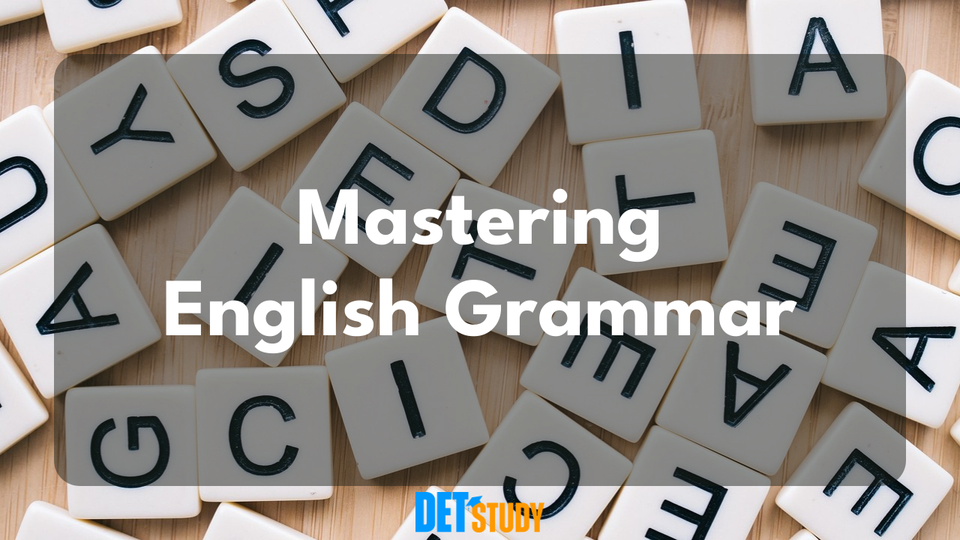Is Before a Subordinating Conjunction: Mastering English Grammar for Clearer Communication

Understanding Subordinating Conjunctions
Subordinating conjunctions are essential components of English grammar used to join dependent clauses, also known as subordinate clauses, with independent clauses. These conjunctions help indicate a relationship between the two clauses, such as cause and effect, contrast, time, condition, and place, thereby adding more depth and detail to sentences.
In simple terms, a subordinating conjunction connects a less important idea (dependent clause) to a main idea (independent clause). The dependent clause cannot stand alone as a complete sentence; it relies on the main clause to provide context and meaning.
Common subordinating conjunctions include: - because - although - since - unless - after - while - if - when - before - as
How to Boost Your Duolingo English Test Score by 10 PointsExamples of Subordinating Conjunctions in Sentences
-
Cause and Effect: - Because it was raining, we stayed indoors.
- Here, "because" shows the reason for staying indoors, connecting the subordinate clause "because it was raining" with the main clause "we stayed indoors."
-
Contrast: - Although she was tired, she finished her homework.
- In this sentence, "although" introduces a contrast between her being tired and her completing her homework.
-
Time: - After the meeting finished, we went out for lunch.
- The word "after" is used to indicate the sequence in time; the subordinate clause "after the meeting finished" explains when "we went out for lunch."
-
Condition: - If you study hard, you will pass the test.
- "If" introduces a conditional relationship, with the subordinate clause "if you study hard" specifying the condition under which "you will pass the test."
-
Place: - Wherever you go, I'll follow you.
- In this instance, "wherever" specifies the location condition, linking the subordinate clause "wherever you go" with the main clause "I'll follow you."
Positioning of Subordinate Clauses
Subordinate clauses can appear at the beginning or end of a sentence. If a subordinate clause starts the sentence, it is typically followed by a comma, while no comma is needed if it ends the sentence.
- Before the sun rises, they begin their journey.
- They begin their journey before the sun rises.
Understanding how subordinating conjunctions function within sentences will help you construct more complex, nuanced, and varied sentences in English. Use them to show the relationship between different actions, events, conditions, or states in your writing!
Identifying the Role of 'Is' in Sentences
The word "is" serves an important role in English grammar, acting as a form of the verb "to be." It is used to indicate a state of being or existence, describe characteristics, or identify relationships between the subject and complement within a sentence. While "is" typically functions as a linking verb rather than preceding subordinating conjunctions, it plays a crucial part in constructing clear and meaningful sentences.
Examples of 'Is' in Sentences
-
Descriptive Role: - She is happy.
- In this example, "is" links the subject "she" to the adjective "happy," describing her current state.
-
Identifying Role: - The cat is on the roof.
- Here, "is" connects the subject "the cat" with the phrase "on the roof," indicating the cat's location.
-
Expressing Time: - It is 3 o'clock.
- "Is" links the pronoun "it" to the time expression "3 o'clock," specifying the current time.
-
Existence: - There is a book on the table.
- In this case, "is" helps express the existence of "a book" at a particular location, "on the table."
'Is' following a Subordinating Conjunction
While "is" may not directly precede subordinating conjunctions, it often appears in subordinate clauses to maintain clarity and coherence. Here are some examples:
- Because she is tired, she went to bed early.
-
"Is" follows the subordinating conjunction "because," linking "she" to "tired," thus supporting the reason provided by the subordinate clause.
-
Although the weather is cold, they decided to have a picnic.
-
In this sentence, "is" follows "although," connecting "the weather" with "cold" and setting the scene for the main clause.
-
If he is ready, we will leave.
- Using "is" after "if" helps define the condition regarding "he" being "ready."
Positioning within Sentences
When "is" appears in subordinate clauses, it helps generate conditions, reasons, or contrasts which are essential for linking such clauses with the main clause, enhancing the intricate relationship between different ideas in a sentence.
By understanding and utilizing "is" correctly, you can form sentences that clearly communicate the state, identity, time, or existence of subjects, thereby crafting more coherent and effective expressions in English. Whether it's used in a subordinate or main clause, "is" anchors the ideas, aiding in delivering precise meaning and context.
Common Mistakes with 'Is' and Subordinating Conjunctions
In English, it's important to recognize that "is," a form of the verb "to be," does not directly interact with subordinating conjunctions like "although," "because," "if," "when," etc., but rather serves a supportive role in the subordinate clauses. Here are some common mistakes English learners make when using "is" with subordinating conjunctions, along with explanations and examples to clarify their use.
Misplacing "Is" Within Clauses
Sometimes, learners incorrectly place "is" outside of or incorrectly within the subordinate clause. Remember, "is" should follow the subject and any subordinating conjunction within the subordinate clause.
Incorrect:
Because tired she is, she went to bed early.
- Correct: Because she is tired, she went to bed early.
- "Is" follows "she" after the conjunction "because."
Overlooking Subject-Verb Agreement
It is crucial to ensure that "is" agrees with the subject of the subordinate clause in number and person. Learners often forget this, especially in complex or lengthy sentences.
Incorrect:
If they is ready, we will leave.
- Correct: If they are ready, we will leave.
- "They" as the subject requires "are," the correct form for plural subjects.
Using "Is" in Irrelevant Clauses
Another error occurs when learners erroneously use "is" in clauses where it is not needed, which can muddle the meaning of the sentence.
Incorrect:
Although the trip is exciting is, we have to be careful.
- Correct: Although the trip is exciting, we have to be careful.
- The extra "is" is unnecessary and disrupts the sentence flow.
Confusing "Is" with Other Verbs
At times, learners might confuse "is" with other auxiliary verbs needed in conjunction with subordinating conjunctions.
Incorrect:
When is he coming, call me.
- Correct: When he is coming, call me.
- "He is coming" should be structured as a subject and verb linked within the subordinate clause.
Examples for Clarity
- Incorrect:
If is she available, we can start the meeting. -
Correct: If she is available, we can start the meeting.
- Ensure the correct order of subject ("she") and verb ("is").
-
Incorrect:
When it ready is, let me know. - Correct: When it is ready, let me know.
- Place "is" after "it" to maintain the logical structure.
By paying close attention to the placement of "is" and ensuring it follows the subject within subordinate clauses, English learners can avoid these common pitfalls. Proper use of "is" enhances clarity and coherence in sentences, allowing for more precise and effective communication.

Examples of 'Is' Before Subordinating Conjunctions
Examples of 'Is' Before Subordinating Conjunctions
When constructing sentences, it's important to use "is" correctly in relation to subordinating conjunctions. Here are examples highlighting how "is" functions within subordinate clauses, ensuring clarity and grammatical accuracy:
-
After "because"
He is studying hard because he is determined to pass the exam.
Notice that "is" follows the subject "he" after the conjunction "because." -
Following "although"
She continues to work out regularly although it is difficult to find time.
Here, "is" connects to "it," forming a clear link after "although." -
With "if"
We can start dinner if everyone is here.
In this sentence, "is" comes after "everyone," maintaining a straightforward subject-verb order. -
Using "when"
The party will start when everyone is ready.
"Is" in this example pairs with the subject "everyone" to keep the sentence coherent. -
Incorporating "since"
We have been quieter since the baby is asleep.
The clause is correctly structured with "is" following "the baby" after "since." -
Utilizing "as soon as"
We will leave as soon as the car is packed.
This example shows "is" coming after the subject "the car," making the sentence logical and cohesive.
These examples emphasize how placing "is" after both the subordinating conjunction and the subject enhances sentence clarity and supports grammatical structure. Understanding this order helps avoid common mistakes and ensures your writing is easily understood. Practice using these structures in your own sentences to become more confident with their application.
Tips for Correct Usage in Written and Spoken English
Proper usage of "is" in sentences with subordinating conjunctions involves understanding sentence structure and recognizing the role of subjects and verbs. Here are some tips to help new learners master this aspect of English grammar:
All 19 Duolingo English Test Question Types for 2025Consistent Subject-Verb Order
Ensure "is" follows the subject in subordinate clauses. This structure is essential for clarity.
- Example:
- Incorrect: Although is the weather cold, we went hiking.
- Correct: Although the weather is cold, we went hiking.
Identifying Subordinate Clauses
Recognize which part of the sentence depends on the main clause. This typically starts with subordinating conjunctions like "because," "if," "when," "as soon as," etc.
- Example:
- Incorrect: While is she studying, the room should be quiet.
- Correct: While she is studying, the room should be quiet.
Refrain from Inversion in Dependent Clauses
Avoid inverting the subject and verb within subordinate clauses, as English typically maintains a subject-verb order outside questions.
- Example:
- Incorrect: If is he interested, he will join the class.
- Correct: If he is interested, he will join the class.
Use of "Is" Across Tenses and Forms
Remember that "is" is specific to the present tense and third-person singular subjects. Ensure you correctly conjugate for past or future contexts.
- Present: If she is busy, she will call later.
- Past: If she was busy, she called later.
- Future: If she will be busy, she will call later.
Examples in Spoken English
Practice constructing sentences verbally to gain confidence. Knowing the rules helps, but speech often requires quick mental coordination.
- Drill Practice:
- When you are planning a trip, ensure everything is packed.
- Since the movie is long, plan the evening accordingly.
- As soon as it is safe, we will proceed.
Exercises for Mastery
Create sentences using different subordinating conjunctions, ensuring "is" follows the subject appropriately:
- Though it is late, I will finish my work.
- Unless the weather is bad, we will go hiking.
- Because the class is full, I’ll enroll next semester.
By focusing on these elements, learners can better grasp the intricacies of using "is" within subordinate clauses. Regular practice helps in developing an intuitive understanding of these structures, which enhances both written and spoken proficiency in English.
DET Study provides an extensive suite of over 15,000 practice questions, focusing on leveraging adjectives and adverbs to fortify your grammatical skills. Regular practice with these targeted materials ensures that you approach the Duolingo English Test with enhanced confidence and precision, ready to achieve your desired scores.
🎯 Need more practice? Check out DETStudy.com for expert resources, 15,000+ practice questions, and AI-powered writing and speaking feedback.
Frequently Asked Questions (FAQ)
What is a subordinating conjunction?
When should a comma be used before a subordinating conjunction?
Can a subordinating conjunction start a sentence?

